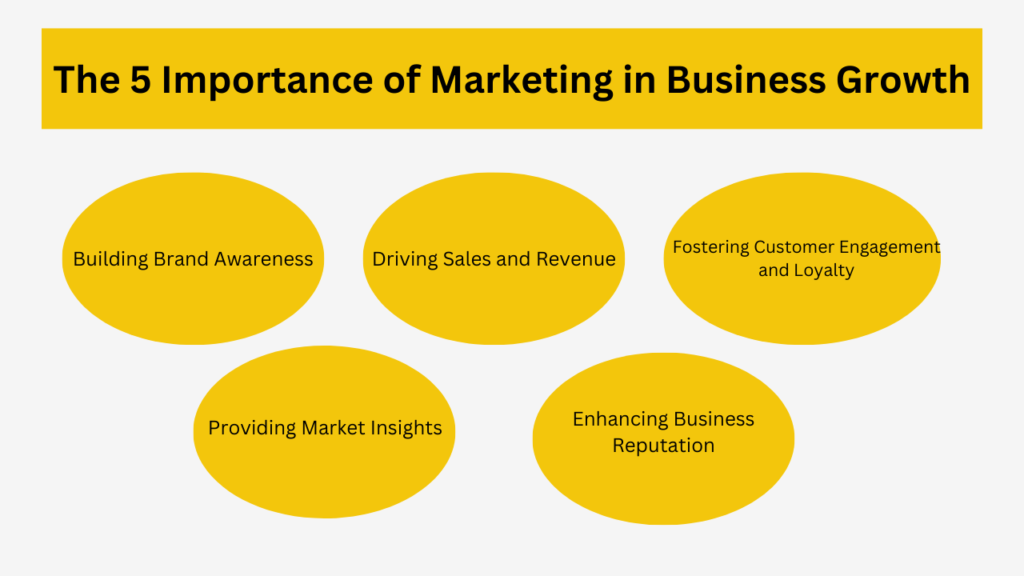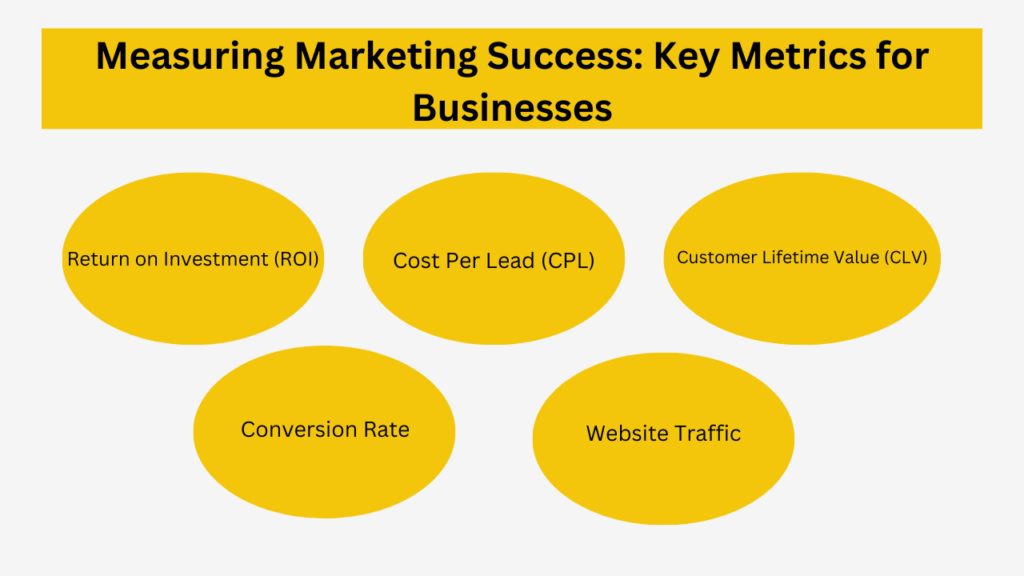Marketing is the lifeblood of any thriving business. It’s the art and science of connecting with your audience, understanding their needs, and delivering value that resonates. Without effective marketing, even the most exceptional products or services can remain unnoticed, and businesses may struggle to achieve their full potential. In this comprehensive article, we’ll delve deep into the importance of marketing, exploring its key elements, strategies, measurement techniques, emerging trends, common pitfalls, and the challenges businesses face in today’s dynamic environment.
1. Introduction
In today’s competitive marketplace, marketing is more than just a business function—it’s a catalyst for growth and a critical component of success. The importance of marketing cannot be ignored as it encompasses a range of activities aimed at promoting products or services, engaging customers, and building brand loyalty. By understanding and implementing effective marketing strategies, businesses can not only survive but thrive, achieving their goals and reaching new heights.
2. The Importance of Marketing in Business Growth
Marketing serves as the bridge between a business and its customers. It’s the process through which companies communicate their value proposition, build relationships, and drive sales. Let’s explore the key reasons why the importance of marketing is indispensable for business growth:

1. Importance of Marketing in Building Brand Awareness
Brand awareness refers to how familiar consumers are with a brand and its offerings. The importance of marketing lies in ensuring that a brand remains top-of-mind for consumers, increasing the likelihood of purchase. According to a study by the Content Marketing Institute, 89% of B2B marketers prioritize brand awareness over sales. This emphasis highlights the importance of marketing in establishing a brand’s presence in the market.
2. Importance of Marketing in Driving Sales and Revenue
At its core, marketing aims to drive sales. By identifying customer needs and presenting solutions, marketing persuades potential customers to make purchasing decisions. A well-executed marketing campaign can lead to a significant increase in sales, contributing directly to a company’s bottom line. For instance, businesses that utilize data-driven marketing strategies have reported a 20% increase in sales. This further emphasizes the importance of marketing in revenue generation.
3. Fostering Customer Engagement and Loyalty
Marketing isn’t just about acquiring new customers; it’s also about engaging existing ones. Through personalized content, social media interactions, and loyalty programs, marketing keeps customers engaged, fostering loyalty and encouraging repeat business. Engaged customers are more likely to become brand advocates, further promoting the business through word-of-mouth. The importance of marketing in customer retention cannot be overstated.
4. Providing Market Insights
Marketing involves researching and analyzing market trends, consumer behavior, and competitor strategies. These insights enable businesses to make informed decisions, tailor their offerings, and stay ahead of the competition. According to the U.S. Small Business Administration, market research helps businesses reduce risks and seize opportunities. The importance of marketing in market analysis helps businesses create better strategies.
5. Importance of Marketing in Enhancing Business Reputation
A strong marketing strategy helps build and maintain a positive brand image. By consistently delivering on promises and effectively communicating with customers, businesses can establish trust and credibility in the market. A positive reputation not only attracts customers but also opens doors to partnerships and other opportunities. The importance of marketing in reputation management is crucial for long-term success.
3. Fundamental Elements of a Winning Marketing Strategy
Developing an effective marketing strategy requires a comprehensive understanding of several key elements. These components work together to create a cohesive plan that drives business success. Understanding the importance of marketing helps in implementing these elements effectively. These components work together to create a cohesive plan that drives business success:
3.1. Importance of Marketing in Branding
Branding is the process of creating a unique identity for a product or service in the consumer’s mind. It involves the use of logos, taglines, design elements, and consistent messaging to differentiate a brand from its competitors. Strong branding fosters recognition and trust, making it easier for businesses to attract and retain customers.
3.2. Importance of Marketing in Identifying the Target Market
Understanding who your customers are is crucial. By identifying the target market, businesses can tailor their marketing efforts to meet the specific needs and preferences of their audience. This targeted approach increases the effectiveness of marketing campaigns and ensures resources are used efficiently.
3.3. Crafting a Clear Value Proposition
A value proposition is a statement that clearly explains how a product or service solves a problem or improves a situation for the customer. It articulates the unique benefits and why a customer should choose your offering over competitors. A compelling value proposition is central to attracting and converting customers.
3.4. Developing a Multichannel Marketing Plan
In today’s digital age, consumers interact with brands across various channels—social media, email, websites, and more. A multichannel marketing plan ensures a consistent and seamless experience for customers, regardless of how they engage with the brand. This approach increases reach and improves the chances of converting prospects into customers.
3.5. Implementing Marketing Measurement and Analytics
To gauge the effectiveness of marketing efforts, it’s essential to track and analyze key performance indicators (KPIs). Metrics such as return on investment (ROI), customer acquisition cost (CAC), and conversion rates provide valuable insights into what’s working and what needs adjustment. Data-driven decision-making leads to more effective and efficient marketing strategies.
4. Measuring Marketing Success: Key Metrics for Businesses
Evaluating the success of marketing initiatives is vital for continuous improvement and optimal resource allocation. The importance of marketing analytics in measuring success ensures businesses can track performance and make necessary adjustments. Here are some key metrics businesses should monitor:

a. Return on Investment (ROI)
ROI measures the profitability of a marketing campaign by comparing the revenue generated against the cost incurred. A positive ROI indicates that marketing efforts are contributing to business growth. Companies that track ROI effectively can adjust their strategies to maximize returns.
b. Cost Per Lead (CPL)
CPL measures the expense of acquiring a new lead through marketing efforts. A lower CPL indicates an efficient campaign, whereas a high CPL may signal the need for strategy optimization. Businesses should strive to generate quality leads at a reasonable cost.
c. Customer Lifetime Value (CLV)
CLV is the entire amount of money a company can anticipate making from a single client throughout the course of that client’s association with the brand. High CLV suggests strong customer loyalty and effective long-term engagement strategies.
d. Conversion Rate
Conversion rate measures the percentage of users who complete a desired action, such as making a purchase or signing up for a newsletter. A high conversion rate indicates effective marketing tactics and well-optimized user experiences.
e. Website Traffic
Monitoring website traffic helps businesses understand how their online presence is performing. Analyzing traffic sources (organic, paid, referral, social media) enables businesses to optimize marketing efforts for better visibility and engagement.
5. Emerging Marketing Trends Every Business Should Watch
Marketing is an ever-evolving field, and staying ahead of trends is essential for businesses looking to maintain a competitive edge. The importance of marketing innovation plays a significant role in ensuring brands stay relevant. Some of the newest and greatest trends are as follows:
a. Authentic Long-Form Content
Consumers crave in-depth, valuable content that educates and informs. Long-form blog posts, detailed guides, and thought leadership articles help businesses establish authority and improve SEO rankings.
b. Short-Form Video Content
Short-form videos have gained popularity because to platforms like YouTube Shorts, Instagram Reels, and TikTok.. These engaging, bite-sized videos capture audience attention and drive higher engagement rates.
c. Chatbots and AI-Powered Marketing
AI-driven chatbots enhance customer service by providing instant responses and personalized interactions. Businesses that integrate AI into their marketing strategies improve user experience and efficiency.
6. Common Marketing Mistakes That Undermine Business Growth
Avoiding common marketing mistakes can save businesses from wasted resources and missed opportunities. Recognizing the importance of marketing helps in preventing these errors and improving efficiency. The following are some things to be aware of:
a. Ignoring Email and SMS Marketing Opportunities
Email and SMS marketing remain highly effective channels for customer engagement. Businesses that neglect these methods miss out on valuable direct communication opportunities.
b. Not Utilizing Social Media Effectively
Social media is a powerful tool for brand awareness and customer interaction. Failing to maintain an active presence or engage with followers can result in lost opportunities for growth.
c. Overlooking Proofreading
Content riddled with errors damages credibility and professionalism. Businesses should ensure all marketing materials are thoroughly proofread before publication.
d. Not Prioritizing SEO Best Practices
SEO is crucial for online visibility. Businesses that ignore keyword optimization, meta descriptions, and quality backlinks risk lower search engine rankings and decreased organic traffic.
e. Prioritizing Quantity Over Quality
Posting frequent but low-quality content can harm brand perception. Businesses should focus on producing valuable, well-researched, and engaging content instead of prioritizing volume.
7. Challenges Businesses Face in Marketing and How to Overcome Them
Marketing presents numerous challenges, but businesses that proactively address them can achieve sustainable growth. The importance of marketing adaptability is crucial in overcoming industry obstacles.
a. Rapidly Changing Consumer Behavior
Consumer preferences shift rapidly due to technology and market trends. Businesses must stay informed through market research and adapt their strategies accordingly.
b. Increased Competition
As more businesses enter the market, standing out becomes difficult. Strong branding, unique value propositions, and personalized marketing strategies help differentiate brands from competitors.
c. Budget Constraints and ROI Measurement
Marketing budgets are often limited, making it crucial to invest in cost-effective strategies. Tracking key performance indicators (KPIs) ensures that every dollar spent contributes to growth.
d. Importance of marketing in Adapting to Technological Advancements
New marketing technologies, such as AI, automation, and data analytics, require businesses to stay updated. Companies that embrace innovation gain a competitive advantage.
e. Data Privacy and Regulations
With increasing concerns about data security, businesses must comply with privacy regulations like GDPR and CCPA. Transparent data collection and ethical marketing practices build customer trust.
f. Content Saturation and Audience Attention
The internet is flooded with content, making it harder to capture audience attention. High-quality, unique, and engaging content helps businesses stand out.
g. Social Media Algorithm Changes
Frequent changes in social media algorithms can impact reach and engagement. Businesses should diversify their marketing channels and focus on organic engagement strategies.
h. Customer Expectation Management
Modern consumers expect personalized experiences. Businesses should leverage data analytics to understand customer preferences and deliver tailored marketing campaigns.
i. Balancing Short-Term and Long-Term Goals
Some Importance of Marketing – marketing efforts yield immediate results, while others take time to show impact. Businesses must balance short-term campaigns with long-term brand-building strategies.
8. Conclusion
The importance of marketing cannot be overstated—it is the driving force behind brand awareness, customer engagement, and revenue generation. A well-planned marketing strategy ensures business growth, fosters customer loyalty, and helps navigate industry challenges. By understanding key elements, leveraging data-driven insights, and staying ahead of emerging trends, businesses can build sustainable success in an ever-evolving market. Investing in marketing is not an option—it is a necessity for thriving in today’s competitive landscape.
Riyo is a Digital Marketing expert with specialization in SEO and Market Analysis. He has hands-on experience in keyword research, on-page & off-page SEO, and data-driven marketing strategies. Riyo helps businesses boost their online visibility and grow through smart digital tactics.


